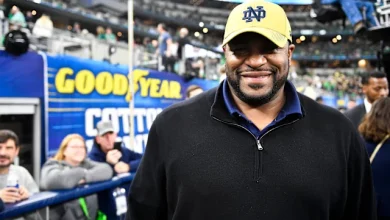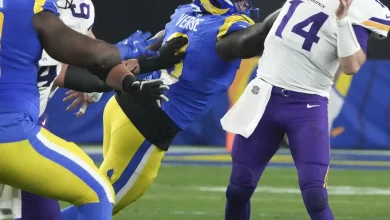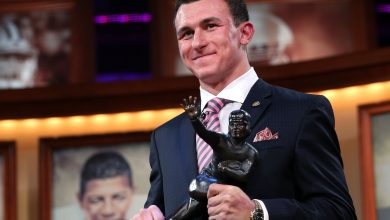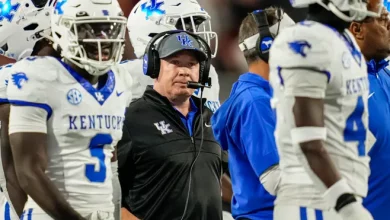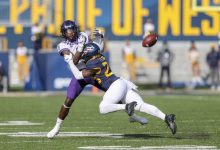Dick Vitale’s Emotional Exit From UNC-Duke Broadcasts After 35 Years Sparked Controversy When ESPN Gave Jay Bilas the Mic
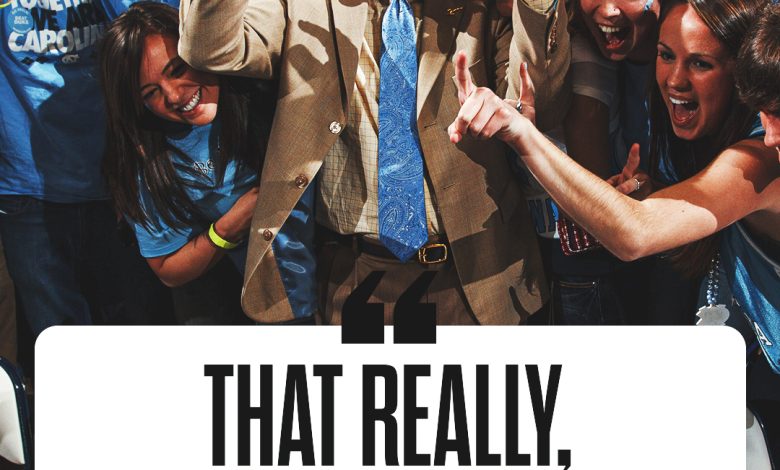
For over three decades, Dick Vitale’s enthusiastic voice, unmistakable passion, and electric commentary became synonymous with one of college basketball’s greatest rivalries: North Carolina vs. Duke. The Tobacco Road showdown wasn’t just a regular game—it was a cultural event, and for 35 years, Vitale’s presence helped elevate it to legendary status.
So when ESPN decided to move Vitale off the call in 2015, giving the coveted assignment to rising analyst Jay Bilas, the move did not go unnoticed—and certainly didn’t go uncriticized.
A Storied Run
From his first time calling UNC-Duke in the early 1980s, Vitale brought more than analysis to the game—he brought emotion. His signature phrases like “Diaper Dandy” and “PTPer” became part of the rivalry’s soundtrack. Vitale didn’t just analyze the play on the court; he celebrated the spectacle, the tradition, and the stakes.
Vitale’s connection to the game wasn’t performative—it was deeply personal. He often spoke about how the rivalry represented everything great about college basketball: passion, pageantry, and pride. For fans on both sides, his presence made those games feel bigger than life.
For 35 years, Vitale was a fixture. He called classics between Dean Smith’s Tar Heels and Mike Krzyzewski’s Blue Devils, bearing witness to some of the sport’s most iconic moments.
The Sudden Switch
In 2015, that era abruptly ended. ESPN decided that former Duke player and lead analyst Jay Bilas would now be the primary voice for the rivalry matchup. The decision stunned many in the college basketball community. Bilas, who had gained traction for his insightful analysis and growing presence on ESPN’s flagship college basketball shows, was considered a worthy successor—but Vitale’s sudden absence left fans puzzled.
Vitale later admitted in interviews that the decision “hurt deeply.” He had not been informed in advance. Instead, he found out like everyone else—through scheduling announcements and network chatter. There was no sendoff, no tribute, and no clear reason from ESPN.
“I gave everything I had to that game,” Vitale said. “It was always an honor. I thought I’d be able to call at least one more before stepping away.”
The decision wasn’t just a blow to Vitale—it was also met with mixed reactions by fans and industry insiders alike.
Fans React: Divided Allegiances
The move created a schism among college basketball fans. Some welcomed Bilas’ elevation, citing his sharp breakdowns, unique player perspective, and ties to the rivalry as a former Blue Devil.
Others, however, believed ESPN’s decision reeked of ageism and corporate callousness. To them, Vitale wasn’t just a broadcaster—he was the rivalry. Social media lit up with comments questioning the change. Many believed Vitale should have been allowed to choose his exit on his own terms.
“The game won’t sound the same without Dickie V,” one fan posted on Twitter the night of the 2015 matchup. “I love Bilas, but this feels wrong.”
The Network’s Explanation
ESPN, for its part, framed the move as part of a broader evolution in its broadcast strategy. Bilas was rising fast, and his analytical, no-frills approach aligned with the network’s desire to appeal to a more modern, data-driven audience.
In a brief statement, ESPN praised Vitale’s contributions and legacy, calling him “one of the greatest ambassadors for the game,” but noted that broadcast teams “naturally evolve over time.”
Still, the network’s explanation did little to quell the backlash. There was no farewell montage, no on-air acknowledgment of Vitale’s decades-long presence on the call. To many, it felt like the ending of a chapter without turning the page properly.
Vitale’s Response
While publicly gracious, Vitale couldn’t hide the pain. In interviews, he admitted the snub cut deep.
“I understand things change. I’ve had a blessed career,” Vitale said. “But after 35 years of calling that game, I thought I deserved a little better. I would’ve loved to call just one more UNC-Duke game, to say goodbye properly.”
The moment, however, became a turning point for Vitale, who shifted his focus toward other matchups and causes, including his tireless efforts raising money for pediatric cancer research.
Still, the rivalry’s exclusion from his schedule each year remained a sore spot.
Jay Bilas: The New Voice
For Bilas, the promotion was a dream and a responsibility. As a Duke alum, he understood the stakes and the emotion of the rivalry. Still, he faced pressure stepping into a role that Vitale had made iconic.
To his credit, Bilas honored Vitale on multiple occasions, publicly stating that Dickie V’s shoes couldn’t be filled.
“Dick Vitale made that game what it is on television,” Bilas said in a 2016 interview. “I’m honored to be calling it now, but nobody will ever replace him. He’s a legend.”
Despite the controversy, Bilas has done well in the role. His detailed analysis, focus on matchups, and experience as a former player have earned him credibility and admiration. But the energy—the over-the-top joy that Vitale brought—remains unmatched.
The Legacy of Vitale’s Voice
While the network may have moved on, the echoes of Vitale’s exuberance still ring in the memories of fans. His call of Tyler Hansbrough’s gritty performance in 2007, or his marveling over J.J. Redick’s shooting, are forever etched into rivalry lore.
Vitale’s voice wasn’t just commentary—it was theater. It elevated great moments into transcendent ones. That’s a legacy no production schedule can erase.
As time passed, ESPN did eventually give Vitale moments of appreciation—tributes, award presentations, and even a standing ovation at the 2022 ESPYs. But for fans of the UNC-Duke rivalry, his absence from the broadcast booth in 2015 felt like a door closing without a proper goodbye.
A Bittersweet Ending
Vitale’s emotional separation from the rivalry he helped elevate serves as a cautionary tale about how quickly the broadcast world moves on, even from its brightest stars. It also raises questions about how media networks should handle the transition of legacy voices.
As Vitale continues to fight health challenges with trademark optimism and determination, the respect and affection for him only grow. He remains a titan of the sport—a voice of joy, conviction, and eternal love for the game.
Dick Vitale’s 35-year run calling the UNC-Duke rivalry was more than a broadcasting assignment—it was a cultural touchstone. His removal in 2015 may have closed a chapter, but it didn’t erase the story he helped write.
In the end, whether fans lean toward Bilas’ brainy insight or Vitale’s boundless enthusiasm, they can agree on one thing: college basketball is better because of Dickie V.
And for those who remember the roar of the Dean Dome or the fury of Cameron Indoor with Vitale’s voice riding above the madness, those moments remain unforgettable.
Just like the man who gave them life.



